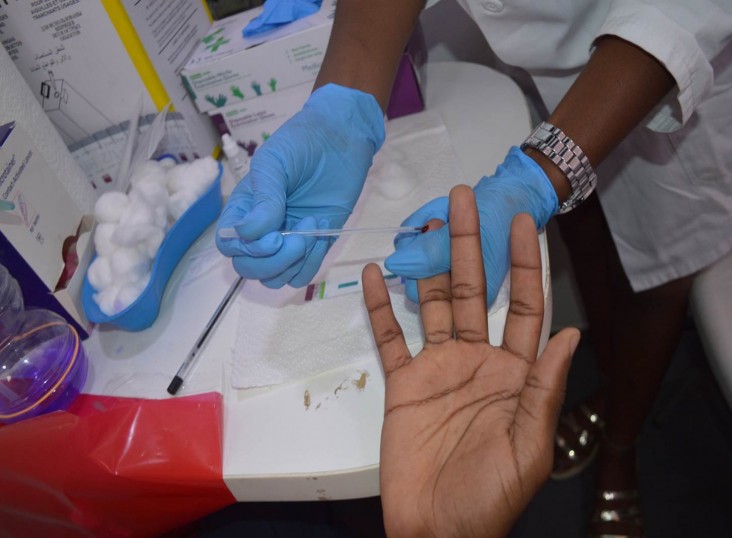Speeches Shim

With colorful drawings and positive health messages decorating the walls, the Katutura NAPPA Clinic in Windhoek invites visitors from the minute they step off the busy street and towards the set of brightly-painted containers.
The Katutura NAPPA Clinic offers a range of sexual and reproductive health needs, including family planning, pregnancy tests and counseling, cervical cancer screening, antenatal care, Sexually Transmitted Infections (STI) screening and HIV testing and treatment. Adding to their menu of integrated services is now pre-exposure prophylaxis, or PrEP.
Pre-exposure prophylaxis is used by HIV-negative individuals who feel they are at risk of contracting HIV. Sister Bhera, the nurse in charge of PrEP initiation at the clinic, shares that she uses a PrEP client card and questionnaire to determine which clients might be at substantial risk.
“We see a lot of sero-discordant couples,” Sister Bhera explains, “couples where one partner is HIV-positive and on treatment, and one partner is HIV-negative.”
She goes on to explain that she also sees a mix of both women and men coming for various reasons, but all are looking for options to protect themselves and remain HIV negative.
While the clinic targets services for young adults, men and women aged 18-24, they do not turn away anyone who feels they are at risk of contracting HIV. The client card Sister Bhera uses with patients includes a number of questions to help identify information and situations that would put a client at higher risk of contracting the virus
Frederike Indongo* is one of NAPPA’s PrEP clients. She has been using NAPPA services since 2013, and is grateful and relieved for an added option to protect herself from HIV. Frederike is 23 years old and a mother of two.
During her pregnancy last year, she learned of her partner’s HIV status. She received an HIV test during her antenatal care visits, which confirmed her status as HIV-negative. As a way to protect herself and her unborn child, Frederike began to take anti-retroviral medications (ARVs) during the course of her pregnancy. After the birth of her HIV-negative baby, she was no longer prescribed ARVs. Frederike asked the clinic she had attended for antenatal care if there was anything available that would allow her to continue protecting herself.
“They didn’t tell me anything,” Frederike says, “I was just told I should use condoms”.
A visit to the NAPPA clinic provided hope for Frederike. She came for a visit and HIV test with her partner, and was offered PrEP because she is part of a sero-discordant couple. Frederike had found the protection option she had been searching for.
“I am very happy about the option of having PrEP. I was fighting for this information, but no one was able to explain or help me,” she explains about her time prior to visiting the NAPPA clinic.
Frederike shares that because it is just one pill a day, it is very easy for her to remember to take it. She always takes it in the evenings, after dinner. PrEP has become part of her daily routine. Her mother is very happy that she has received help, and her partner supports her taking PrEP.
Frederike is happy to share information about PrEP with her friends and family, including sero-discordant couples she knows. She adds that she prefers to come to NAPPA over other health clinics, because she gets to see a nurse more quickly, the clinic is less crowded, and she doesn’t have to wait in long queues.
Sister Bhera and the staff at the Katutura clinic hope to see more clients like Frederike making use of PrEP as a prevention option for HIV. NAPPA shares information about the availability of PrEP through radio announcements and information cards available at their clinics throughout the country. They also train peer counselors and community-based reproductive health assistants to speak about PrEP during their community outreach days.
With the support of the U.S. President’s Emergency Fund for AIDS Relief (PEPFAR) through the United States Agency for International Development (USAID), almost 2,000 Namibians have been put on PrEP medication over the past 8 months alone. Namibia is one of 13 African nations poised to control the HIV epidemic by 2020.

Comment
Make a general inquiry or suggest an improvement.